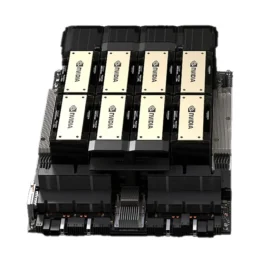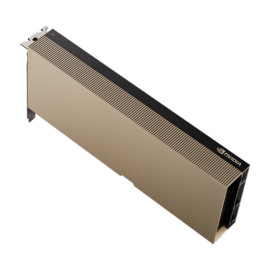High-Performance Computing (HPC) is at the forefront of solving complex computational problems, from scientific research to financial modeling and artificial intelligence. Central to this field are HPC servers, specialized systems designed to handle massive amounts of data and perform calculations at incredible speeds. In this article, we’ll explore what an HPC server is, how it differs from a normal computer, and the best HPC servers available in the market today.

Table of Contents
ToggleWhat is an HPC Server?
An HPC server, or High-Performance Computing server, is a powerful computing system designed to perform complex calculations and process large amounts of data at high speed. Unlike typical servers, HPC servers are built with parallel processing capabilities, allowing them to execute multiple tasks simultaneously. These servers are often composed of clusters of interconnected computers, working together to achieve greater computational power.
HPC servers are used in various fields, including scientific research, weather forecasting, oil and gas exploration, financial modeling, and artificial intelligence. They enable researchers and organizations to perform simulations, analyze big data, and solve problems that would be impossible or time-consuming with standard computing systems.
What is the Difference Between HPC and Normal Computers?
While both HPC servers and normal computers can perform computations, the key differences lie in their architecture, performance, and use cases.
1. Architecture
- HPC Servers: HPC systems are designed with parallel processing in mind. They typically consist of multiple CPUs (Central Processing Units) or GPUs (Graphics Processing Units) working in tandem. These servers are often connected in clusters, allowing them to share resources and perform complex tasks more efficiently.
- Normal Computers: A typical computer, whether a desktop or laptop, usually has a single CPU and may include a GPU for graphics processing. These systems are designed for general-purpose computing and are not optimized for parallel processing on a large scale.
2. Performance
- HPC Servers: The performance of an HPC server far exceeds that of a normal computer. HPC systems are capable of processing trillions of calculations per second, making them suitable for tasks like climate modeling, genome sequencing, and large-scale simulations.
- Normal Computers: While powerful enough for everyday tasks such as browsing, word processing, and light gaming, normal computers cannot handle the enormous computational demands required by HPC workloads.
3. Use Cases
- HPC Servers: These are used in industries and research fields where processing large datasets and running complex simulations are critical. For example, HPC servers are crucial in fields like aerospace, where simulations of fluid dynamics are essential.
- Normal Computers: Typical computers are used for general computing tasks, including office work, entertainment, and personal projects. They are not suitable for the heavy computational loads handled by HPC systems.
What are the Best HPC Servers in the Market?
The market for HPC servers is diverse, with various models designed to meet the specific needs of different industries. Here are some of the best HPC servers available today:
1. Dell PowerEdge C6525
The Dell PowerEdge C6525 is a top-tier HPC server designed for performance-intensive workloads. It features AMD EPYC processors, known for their high core count and superior multi-threading capabilities. The C6525 supports up to 64 cores per socket, making it ideal for parallel processing tasks. Its flexible design allows for easy scalability, and it is optimized for tasks such as scientific research, artificial intelligence, and complex simulations.
2. HPE Apollo 6500 Gen10 Plus
The HPE Apollo 6500 Gen10 Plus is a powerhouse in the HPC market, offering exceptional performance with support for up to eight NVIDIA Tesla V100 GPUs. This server is designed for AI, machine learning, and deep learning applications, providing the computational power needed for the most demanding workloads. The Apollo 6500 Gen10 Plus also features advanced cooling and energy efficiency, making it suitable for large-scale data centers.
3. IBM Power Systems AC922
IBM’s Power Systems AC922 is a standout HPC server known for its robust performance in AI and big data analytics. It features IBM’s POWER9 processors, which are optimized for AI workloads and offer high memory bandwidth. The AC922 also supports NVIDIA NVLink, enabling fast communication between GPUs and CPUs, which is crucial for AI and machine learning tasks. This server is widely used in research institutions and industries that require cutting-edge computational power.
4. Lenovo ThinkSystem SD650
The Lenovo ThinkSystem SD650 is a high-density HPC server designed for data-intensive workloads. It supports Intel Xeon Scalable processors and features a direct water-cooling system, which helps maintain optimal performance even under heavy loads. The SD650 is ideal for scientific research, financial modeling, and other applications that require high computational throughput.
5. Cray XC50
The Cray XC50 is a supercomputer that represents the pinnacle of HPC technology. It is designed for the most demanding scientific and engineering applications, offering unparalleled performance with support for thousands of nodes. The XC50 is used in national laboratories and research centers around the world, powering some of the most advanced simulations and data analysis projects.
Conclusion
HPC servers are essential for industries and research fields that require massive computational power and the ability to process large datasets quickly. They differ significantly from normal computers in terms of architecture, performance, and use cases, making them indispensable for high-performance computing tasks.
Whether you are involved in scientific research, financial modeling, or AI development, choosing the right HPC server is crucial to achieving your goals. The Dell PowerEdge C6525, HPE Apollo 6500 Gen10 Plus, IBM Power Systems AC922, Lenovo ThinkSystem SD650, and Cray XC50 are among the best options available in the market, each offering unique features tailored to specific HPC needs. By selecting the right server, you can harness the full potential of high-performance computing and drive innovation in your field.











